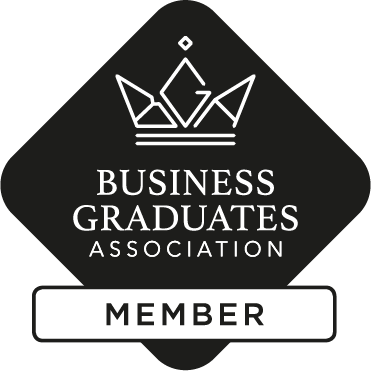University certificate
Scientific endorser

The world's largest faculty of medicine”
Introduction to the Program
This Professional master’s degree takes a dynamic and multidisciplinary approach, perfect for updating your knowledge in Hospital and Health Services Management"
Studying how to manage institutions and organizations can bring a higher degree of quality to the organization of healthcare processes. This program aims to train managers by developing skills, techniques, methodologies and tools that promote their leadership drive, activity management, and team management in a more efficient way using the latest educational technology.

Generally, if a professional is appointed manager of a hospital and does not have adequate training or previous experience, they lack leadership skills and the ability to manage change, as well as finding it difficult to manage relationships (both internal and external).
This may complicate negotiations and cause issues with financial, legal and regulatory management.
This Professional Master’s Degree has been designed to enable students to effectively face these and many other day-to-day problems in hospital management, by developing the skills set out in the Leadership Competencies for Healthcare Services Managers document, issued by the International Hospital Federation.
It combines the best of an Online Business School to develop managerial skills, together with management, communication and social and professional responsibility skills, coupled with the social awareness and ethical conduct required in a position of responsibility in a hospital; that is what we intend to achieve in a program like this. The practical nature of the topics makes it easy for each student to transmit their experience and professional background, making each session, within the context of the program, an opportunity to expand knowledge and put it into action.
In addition, during the training you will receive 10 Masterclasses given by an internationally renowned expert with a long track record in economic management and performance evaluation in hospitals. In this way, thanks to this academic degree, the graduate will acquire expertise in this field. In addition, thanks to the most complete and up-to-date theoretical and practical contents on the market, the student will assimilate the knowledge in an intuitive way. All this through a 100% online program that avoids the face-to-face classes with stipulated schedules, and provides students with effective professional development.
Get specialized through this program,from the hand of an international expert in financial management of healthcare centers of the highest prestige"
This Professional master’s degree in MBA in Hospital and Health Services Management contains the most complete and up-to-date scientific program on the market. The most important features include:
- The development of practical cases presented by experts in Hospital and Health Services Management
- The graphic, schematic, and practical contents with which they are created, provide scientific and practical information on the disciplines that are essential for professional practice
- Practical exercises where the self-assessment process can be carried out to improve learning
- Its special emphasis on innovative methodologies
- Theoretical lessons, questions to the expert, debate forums on controversial topics, and individual reflection work
- Content that is accessible from any fixed or portable device with an Internet connection
This program is the best investment you can make in the selection of a training program for two reasons: in addition to qualifying you as a healthcare manager, you will obtain a degree from TECH Global University"
The program’s teaching staff includes professionals from the sector who contribute their work experience to this educational program, as well as renowned specialists from leading societies and prestigious universities.
The multimedia content, developed with the latest educational technology, will provide the professional with situated and contextual learning, i.e., a simulated environment that will provide immersive education programmed to prepare for real situations.
This program is designed around Problem-Based Learning, whereby the professional must try to solve the different professional practice situations that arise during the course. For this purpose, the students will be assisted by an innovative interactive video system created by renowned and experienced experts.
You will be able to complete the Professional Master's Degree 100% online, adapting it to your needs and making it easier for you to take it while you carry out your full-time healthcare activities"

Increase the quality of your management with this training program, and improve patient care"
Why study at TECH?
TECH is the world’s largest online university. With an impressive catalog of more than 14,000 university programs available in 11 languages, it is positioned as a leader in employability, with a 99% job placement rate. In addition, it relies on an enormous faculty of more than 6,000 professors of the highest international renown.

Study at the world's largest online university and guarantee your professional success. The future starts at TECH”
The world’s best online university according to FORBES
The prestigious Forbes magazine, specialized in business and finance, has highlighted TECH as “the world's best online university” This is what they have recently stated in an article in their digital edition in which they echo the success story of this institution, “thanks to the academic offer it provides, the selection of its teaching staff, and an innovative learning method aimed at educating the professionals of the future”
A revolutionary study method, a cutting-edge faculty and a practical focus: the key to TECH's success.
The most complete study plans on the university scene
TECH offers the most complete study plans on the university scene, with syllabuses that cover fundamental concepts and, at the same time, the main scientific advances in their specific scientific areas. In addition, these programs are continuously being updated to guarantee students the academic vanguard and the most in-demand professional skills. In this way, the university's qualifications provide its graduates with a significant advantage to propel their careers to success.
TECH offers the most comprehensive and intensive study plans on the current university scene.
A world-class teaching staff
TECH's teaching staff is made up of more than 6,000 professors with the highest international recognition. Professors, researchers and top executives of multinational companies, including Isaiah Covington, performance coach of the Boston Celtics; Magda Romanska, principal investigator at Harvard MetaLAB; Ignacio Wistumba, chairman of the department of translational molecular pathology at MD Anderson Cancer Center; and D.W. Pine, creative director of TIME magazine, among others.
Internationally renowned experts, specialized in different branches of Health, Technology, Communication and Business, form part of the TECH faculty.
A unique learning method
TECH is the first university to use Relearning in all its programs. It is the best online learning methodology, accredited with international teaching quality certifications, provided by prestigious educational agencies. In addition, this disruptive educational model is complemented with the “Case Method”, thereby setting up a unique online teaching strategy. Innovative teaching resources are also implemented, including detailed videos, infographics and interactive summaries.
TECH combines Relearning and the Case Method in all its university programs to guarantee excellent theoretical and practical learning, studying whenever and wherever you want.
The world's largest online university
TECH is the world’s largest online university. We are the largest educational institution, with the best and widest online educational catalog, one hundred percent online and covering the vast majority of areas of knowledge. We offer a large selection of our own degrees and accredited online undergraduate and postgraduate degrees. In total, more than 14,000 university degrees, in eleven different languages, make us the largest educational largest in the world.
TECH has the world's most extensive catalog of academic and official programs, available in more than 11 languages.
Google Premier Partner
The American technology giant has awarded TECH the Google Google Premier Partner badge. This award, which is only available to 3% of the world's companies, highlights the efficient, flexible and tailored experience that this university provides to students. The recognition as a Google Premier Partner not only accredits the maximum rigor, performance and investment in TECH's digital infrastructures, but also places this university as one of the world's leading technology companies.
Google has positioned TECH in the top 3% of the world's most important technology companies by awarding it its Google Premier Partner badge.
The official online university of the NBA
TECH is the official online university of the NBA. Thanks to our agreement with the biggest league in basketball, we offer our students exclusive university programs, as well as a wide variety of educational resources focused on the business of the league and other areas of the sports industry. Each program is made up of a uniquely designed syllabus and features exceptional guest hosts: professionals with a distinguished sports background who will offer their expertise on the most relevant topics.
TECH has been selected by the NBA, the world's top basketball league, as its official online university.
The top-rated university by its students
Students have positioned TECH as the world's top-rated university on the main review websites, with a highest rating of 4.9 out of 5, obtained from more than 1,000 reviews. These results consolidate TECH as the benchmark university institution at an international level, reflecting the excellence and positive impact of its educational model.” reflecting the excellence and positive impact of its educational model.”
TECH is the world’s top-rated university by its students.
Leaders in employability
TECH has managed to become the leading university in employability. 99% of its students obtain jobs in the academic field they have studied, within one year of completing any of the university's programs. A similar number achieve immediate career enhancement. All this thanks to a study methodology that bases its effectiveness on the acquisition of practical skills, which are absolutely necessary for professional development.
99% of TECH graduates find a job within a year of completing their studies.
Professional Master's Degree in MBA in Hospital and Health Services Management
In order for the treatments and surgical operations carried out to be successful, it is necessary to have a high-level healthcare staff, from the management team to the Nursing assistants, surgeons and primary care physicians. These are essential for the proper functioning of each hospital center, and therefore in TECH we contribute to this purpose by training our Professional Master's Degree students through a rigorous, deep and updated syllabus. In this way, each one will be able to acquire the necessary skills to responsibly manage the position held and safely attend to the related processes.
Professional Master's Degree in Hospital and Health Services Management.
In order to occupy management, direction and leadership positions in any health institution, it is necessary to have studies like this one from TECH Global University. Through this postgraduate program you will acquire formal knowledge in health administration and management, which will allow you to opt for government positions in both public and private healthcare centers (non-profit organizations).
Study a postgraduate degree online
Thanks to our commitment to the latest educational technology and the extensive experience of our faculty, our program is fully updated and ready to prepare you with the best tools. Train in clinical and hospital management to take on a position of responsibility and leadership in your community, which will allow you to improve health care and participate in the most relevant research, linked to the work experience of all those involved in the medical field.







